Overview of the Iowa Early Learning Standards (IELS)
The Iowa Early Learning Standards (IELS) provide a framework for understanding what young children should know and be able to do from birth to age 5․ They emphasize developmentally appropriate content and skills, aligning with Iowa Core Standards to support seamless transitions to kindergarten and future success․
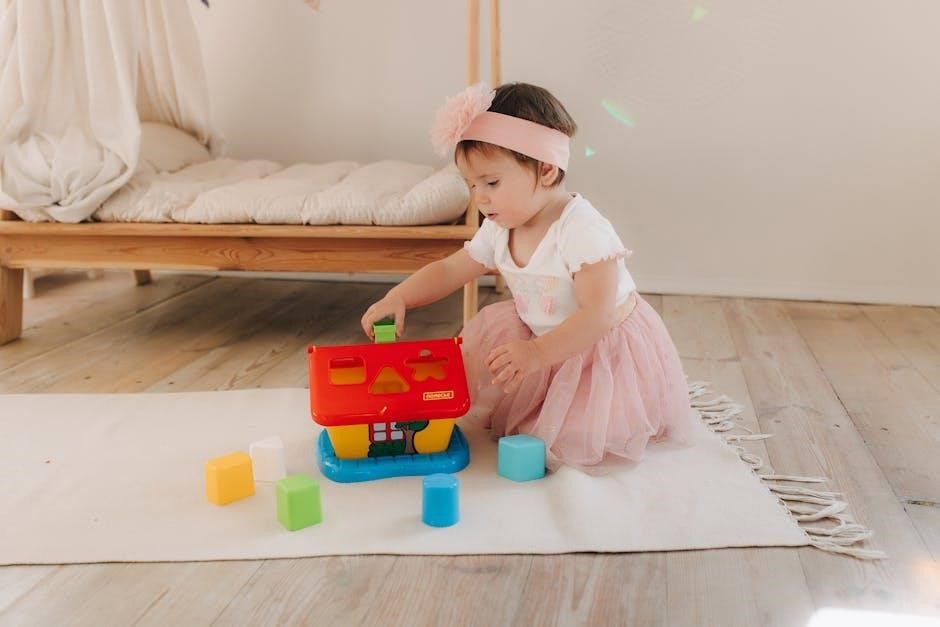
Purpose and Scope of the IELS
The Iowa Early Learning Standards (IELS) are designed to provide a comprehensive framework for understanding and supporting the learning and development of young children from birth to age 5․ The purpose of the IELS is to ensure that all children in Iowa have access to high-quality early learning experiences that prepare them for future success․ These standards serve as a resource for caregivers, educators, and professionals working with young children, offering guidance on developmentally appropriate practices․ The scope of the IELS encompasses eight key developmental domains, including social-emotional, cognitive, and physical skills․ By aligning with the Iowa Core Standards, the IELS supports a seamless transition from early childhood to formal education․ The third edition of the IELS emphasizes the importance of the first years of life and provides tools to foster healthy growth and readiness for kindergarten and beyond․
Key Components of the IELS
The Iowa Early Learning Standards (IELS) are organized into competency levels and developmental domains, providing a clear structure for understanding child development․ The standards emphasize self-awareness, self-management, social awareness, relationship skills, and responsible decision-making as key competencies․ Developmental domains include social-emotional, cognitive, physical, and language and literacy skills․ These components ensure a holistic approach to early learning, addressing the diverse needs of children from birth to age 5․ The IELS also align with the Iowa Core Standards, facilitating a smooth transition to kindergarten and beyond․ By focusing on developmentally appropriate practices, the standards guide educators and caregivers in creating meaningful learning experiences tailored to each child’s stage of development․ This structured framework supports the overall goal of preparing children for lifelong success and fostering healthy, well-rounded growth․
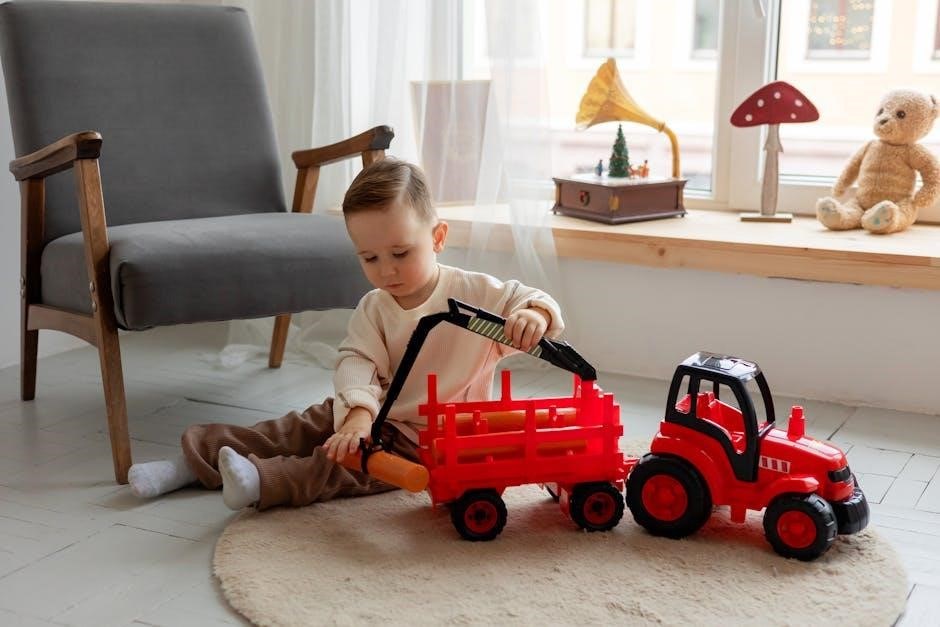
Competency Levels and Developmental Domains
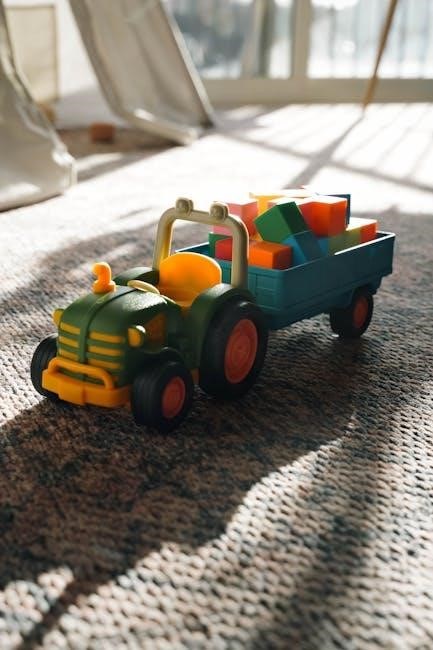
The IELS outline five competency levels and four developmental domains, focusing on social-emotional, cognitive, physical, and language/literacy skills to guide child development from birth to age 5․
Self-Awareness and Self-Management Skills
Self-awareness and self-management skills are foundational competencies in the Iowa Early Learning Standards (IELS)․ These skills focus on a child’s ability to recognize and express their emotions, develop a sense of identity, and regulate their behavior․ Children learn to identify their strengths, needs, and preferences, fostering confidence and independence․ Self-management involves demonstrating self-control, setting goals, and persisting through challenges․ These skills are cultivated through play-based activities, intentional teaching, and supportive interactions with caregivers and educators․ As children progress from birth to age 5, they develop the ability to take responsibility for their actions and make intentional decisions․ These competencies are essential for social-emotional growth and lay the groundwork for future academic and personal success․ The IELS provide guidance on how to support these skills in various early childhood settings, ensuring children are well-prepared for kindergarten and beyond․
Social Awareness and Relationship Skills
Social awareness and relationship skills are critical components of the Iowa Early Learning Standards (IELS), focusing on children’s ability to understand and navigate social interactions․ These skills include cooperation, empathy, and respect for others․ Children learn to recognize and respond to the feelings of peers, develop friendships, and engage in group activities․ They also begin to understand social norms and roles, fostering a sense of community and belonging․ Educators and caregivers play a key role in modeling positive relationships and providing opportunities for collaborative play․ These skills are essential for building strong interpersonal connections and resolving conflicts constructively․ By mastering social awareness and relationship skills, children develop the ability to interact effectively with others, laying a strong foundation for lifelong social and emotional well-being․
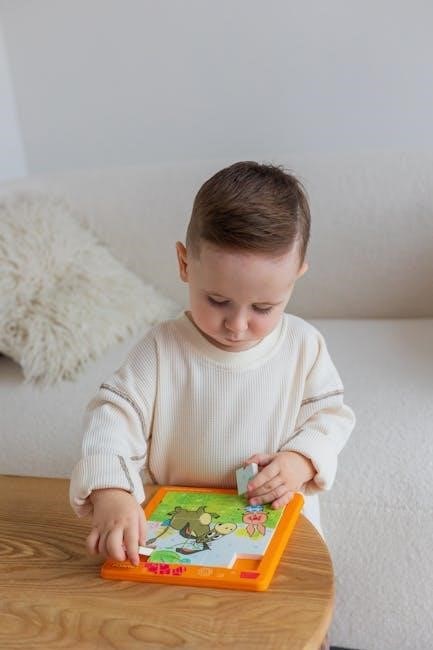
Alignment with Iowa Core Standards
The Iowa Early Learning Standards align with the Iowa Core Standards, ensuring a smooth transition from early childhood to kindergarten and future academic success․
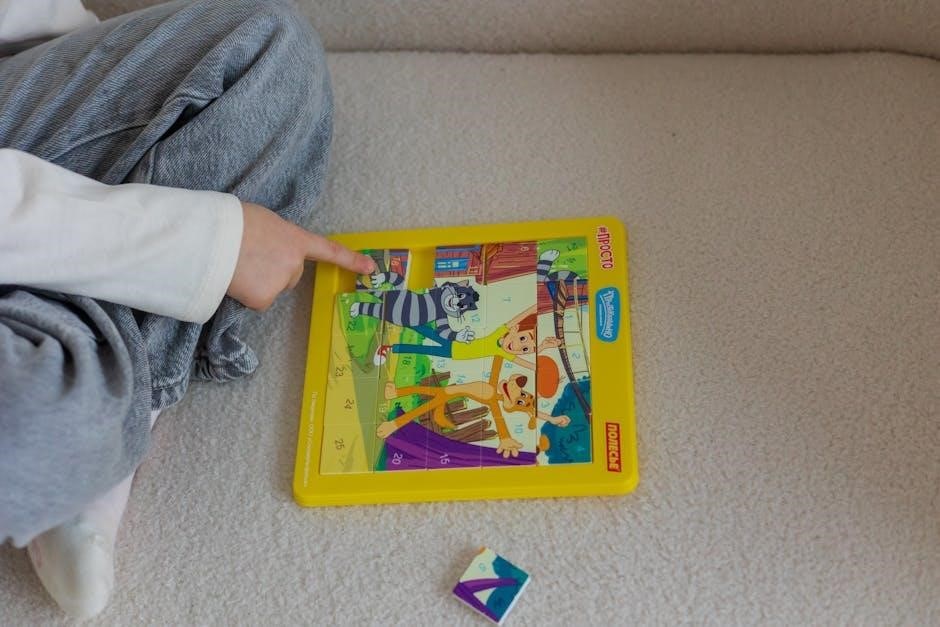
Transition from Early Childhood to Kindergarten
The Iowa Early Learning Standards (IELS) are designed to ensure a smooth transition for children moving from early childhood programs to kindergarten․ These standards emphasize developmentally appropriate skills and knowledge that align with the Iowa Core Standards, preparing children for future academic success․ By focusing on key areas such as social-emotional development, language and literacy, and math readiness, the IELS help early childhood educators and parents foster foundational skills․ The alignment between the IELS and kindergarten standards ensures continuity, reducing the risk of learning gaps․ This seamless transition supports children in building confidence and readiness for formal education․ The IELS also provide guidance for educators to create engaging and supportive learning environments that promote holistic development․ As a result, children enter kindergarten with the skills and confidence needed to succeed․ This approach underscores the importance of early learning experiences in shaping long-term educational outcomes․
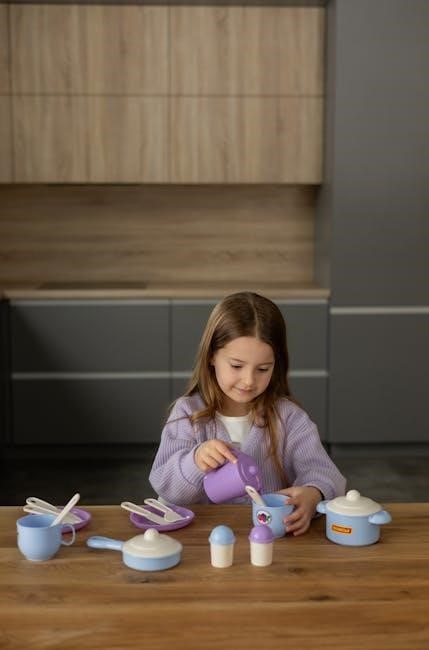
Curriculum Development and Implementation
The Iowa Early Learning Standards (IELS) provide a framework for curriculum development, emphasizing play-based learning and developmentally appropriate practices․ The standards align with Iowa Core Standards, ensuring engaging, interactive activities that support children’s unique developmental needs and foster growth;
Developmentally Appropriate Practices

Developmentally appropriate practices (DAP) are central to the Iowa Early Learning Standards (IELS), ensuring that curriculum and activities are tailored to children’s unique developmental stages․ These practices emphasize play-based learning, hands-on experiences, and social interactions that foster cognitive, emotional, and physical growth․ By aligning with the IELS, educators create environments that respect individual differences and promote meaningful engagement․ The standards encourage observation and assessment to inform instruction, ensuring that activities are both challenging and achievable for young learners․ DAP also supports the integration of family and culture into learning, fostering a sense of belonging and inclusivity․ This approach not only enhances children’s readiness for kindergarten but also lays a strong foundation for lifelong learning and success․ Through DAP, the IELS ensures that early childhood education is both effective and joyful, meeting the diverse needs of all children․
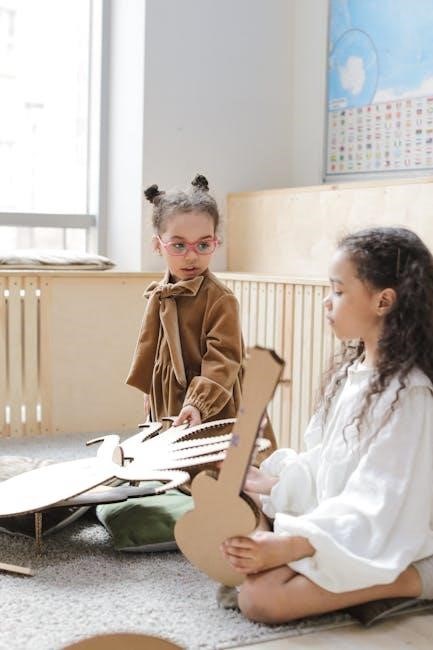
Professional Development and Resources
The Iowa Early Learning Standards offer professional development opportunities, including self-paced online courses, to support educators in implementing developmentally appropriate practices and aligning curriculum with state standards․
Training Opportunities for Early Childhood Educators
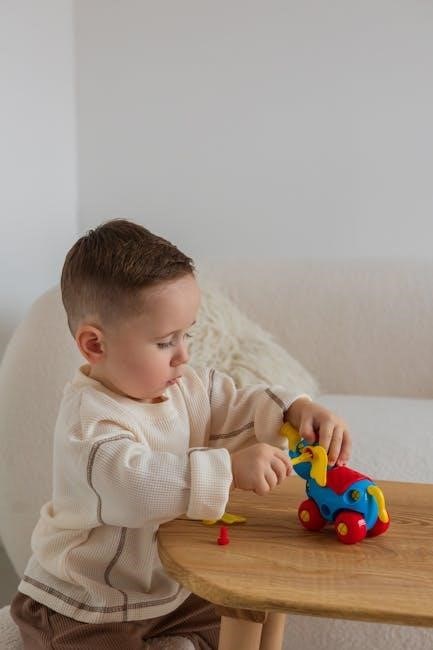
The Iowa Early Learning Standards (IELS) provide various training opportunities for early childhood educators to enhance their skills and knowledge․ These include self-paced online courses, workshops, and professional development programs designed to align curriculum and teaching practices with the IELS framework․ The training focuses on developmentally appropriate practices, play-based learning, and assessing child development effectively․
Additionally, the IELS offers resources and tools to support educators in implementing the standards․ These resources include curriculum guides, assessment materials, and family engagement strategies․ Training opportunities are tailored to meet the needs of diverse early childhood settings, ensuring educators are well-equipped to support children’s learning and development from birth to age 5․
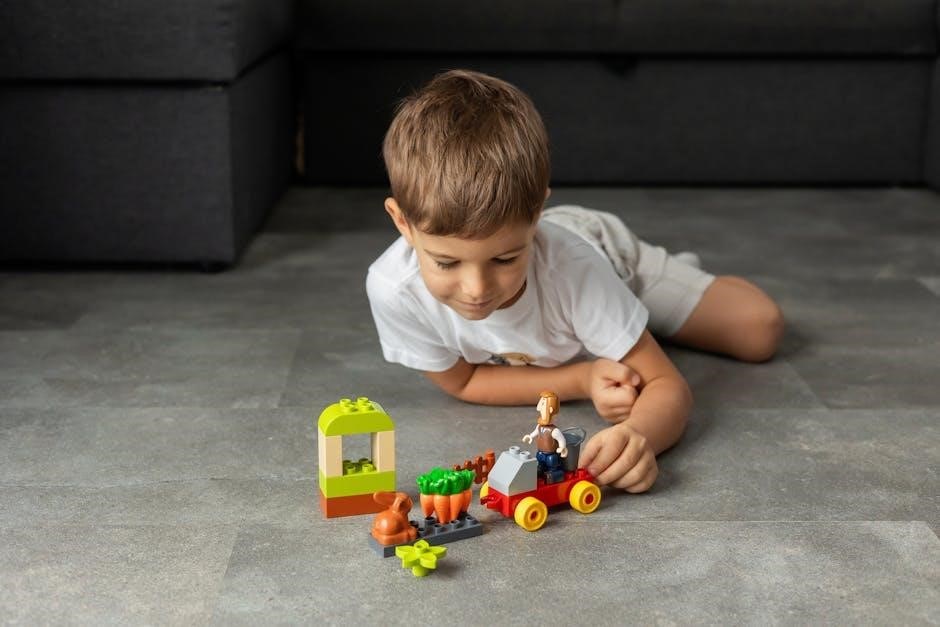
Leave a Reply
You must be logged in to post a comment.